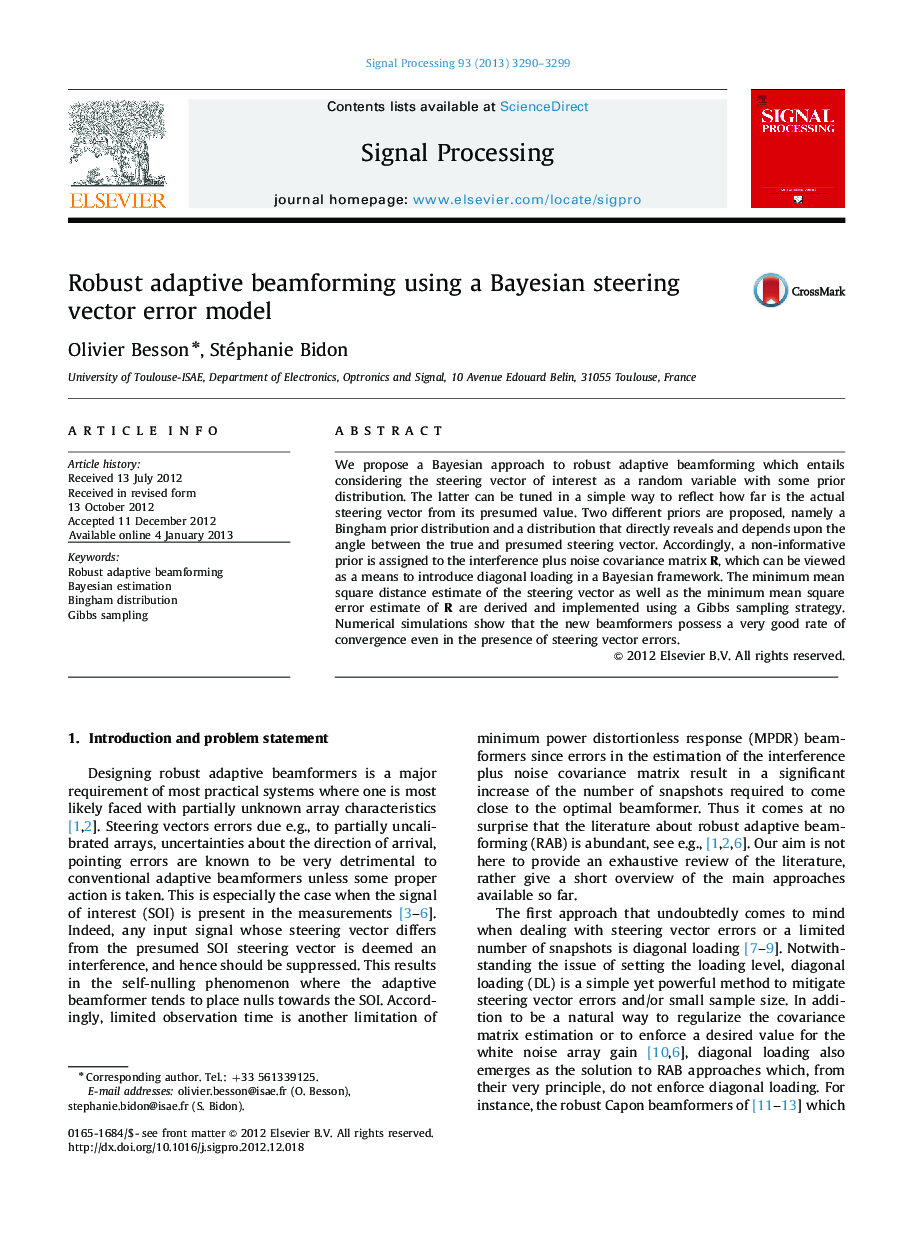| Article ID | Journal | Published Year | Pages | File Type |
|---|---|---|---|---|
| 561306 | Signal Processing | 2013 | 10 Pages |
We propose a Bayesian approach to robust adaptive beamforming which entails considering the steering vector of interest as a random variable with some prior distribution. The latter can be tuned in a simple way to reflect how far is the actual steering vector from its presumed value. Two different priors are proposed, namely a Bingham prior distribution and a distribution that directly reveals and depends upon the angle between the true and presumed steering vector. Accordingly, a non-informative prior is assigned to the interference plus noise covariance matrix RR, which can be viewed as a means to introduce diagonal loading in a Bayesian framework. The minimum mean square distance estimate of the steering vector as well as the minimum mean square error estimate of RR are derived and implemented using a Gibbs sampling strategy. Numerical simulations show that the new beamformers possess a very good rate of convergence even in the presence of steering vector errors.
► We consider robust adaptive beamforming in presence of steering vector (SV) errors. ► A Bayesian approach is proposed based on novel prior distributions for the SV. ► The MMSE of both the steering vector and interference covariance matrix are derived. ► The new Bayesian beamformers offer fast convergence and close to optimal performance.
